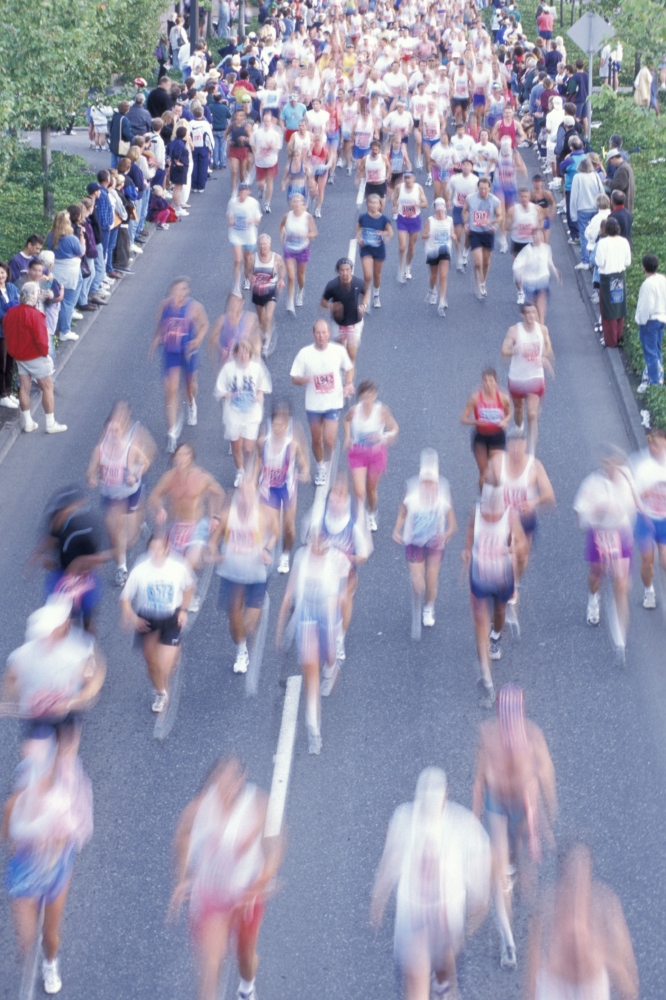
Will you be taking part in the marathon tomorrow?
Getting through the London Marathon will be hard enough for those taking part, but it's important to consider your recovery afterwards as well.
Here we have tips from Dr Stephen Motto, Sports and Musculoskeletal Consultant at London Bridge Hospital on what to do after the event to make sure you get the best recovery after completing such a feat.
Dr Motto has seen a number of injuries over the past two months related to training for the London Marathon and here he gives his Top 10 Tips for recovery strategies following the race:

1. Firstly congratulate yourself on completing the marathon. Well done! You may be aching all over, so it’s important to feel good about yourself. Positive thinking should also help recovery.
2. Ensure you rehydrate adequately following the race, drinking sports drinks that are non-fizzy. This will ensure you replace fluids that are lost during the race and also replaces sodium stores which are depleted during sweating.
3. Attend to any minor injuries, such as grazes, sprains and strains. Use the PRICE principles for soft tissue injury management: Protection, Rest, Ice, Compression, Elevation.
4. Recovery from the marathon may take at least one to 2 weeks. Get plenty of sleep, and don’t think about running again for at least for a week. Cross training (swimming and cycling) will help you maintain your fitness and facilitate recovery.
5. See your GP about coughs and colds that persist beyond a week or two. A chest infection can take hold quite quickly, especially as your immune system is vulnerable in the few days following the event. A course of antibiotics may work wonders. Also seek professional help if you develop bowel problems, or are concerned about headaches or dizziness, chest pain or shortness of breath.
6. Many novice runners take up running in order to reduce or control weight. They have a much greater risk of injury than those who have been running for years. A formal gait analysis may be required if you developed a “Runner’s Knee“ during preparation for the marathon. Do you need foot orthoses? If you are a novice runner and overweight, you may be prone to developing tendinitis. Any tendinitis needs time to heal. Seek professional help, if required.
7. Stress fractures and other more serious injuries are frequent problems seen during preparation for the marathon. Ask your GP, or visit Sports Injury Diagnosis, if you’re worried about persistent pain in the lower limb. An accurate diagnosis is what we are about, as this facilitates recovery by providing expert knowledge about the problem, reducing anxiety and optimising treatment.
8. Review your training strategy, if you have succumbed to injury, during or after the race. Overtraining, doing too much too soon, without an adequate taper, and training with an injury (or illness) are some of the more common causes of marathon injury. How could you prevent this next time?
9. Unless you are an elite runner, don’t think about running more than 2/3 marathons a year.
10. Running is a skill that is often taken for granted. Do you need to change your running style? Get expert advice from a running coach if you want to improve. Maybe you should also consider stopping running, if it’s not for you? There are other activities that you may enjoy that are also energy enhancing, and may be safer for you in the long term.
Tagged in fitness tips Marathon Tips

